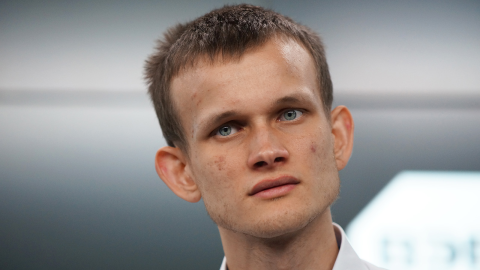Vitalik Buterin Speaks on Arrest of Telegram CEO Pavel Durov
The recent arrest of Telegram founder Pavel Durov in France has sparked significant debate within the tech and crypto communities, notably drawing concern from Ethereum co-founder Vitalik Buterin. Buterin's reaction highlights a broader discourse on the delicate balance between freedom of communication and regulatory oversight, particularly within the rapidly evolving landscape of blockchain technology. His commentary reflects growing apprehension about the shift in how tech leaders are perceived—no longer merely for their undemocratic power, but now for their compliance with governmental authority. Buterin argues that the survival and success of decentralized systems, such as blockchain, require a nuanced approach to governance, one that preserves the core principles of decentralization while acknowledging the necessity of regulatory frameworks. His stance calls for a pluralistic approach to governance, suggesting that a multifaceted strategy is crucial for the continued evolution of technology while safeguarding individual freedoms.
Buterin’s Concerns Over Durov’s Arrest
Vitalik Buterin expressed grave concern over the arrest of Telegram founder Pavel Durov in France, emphasizing the potential implications for software and communication freedom across Europe. This arrest, according to Buterin, represents a significant threat to the autonomy of tech platforms and raises questions about the future of decentralized systems.
Buterin criticized Telegram’s encryption approach in the past, but now, his focus shifts to the broader consequences of Durov’s detention. He argues that this event underscores a growing trend where tech leaders are scrutinized not only for their centralization but also for their relationship with governmental power.
Changing Perceptions of Tech Leaders
Buterin highlights a shift in public criticism toward tech leaders, noting how the focus has moved from their undemocratic power to their failure to act as intermediaries for government authority. This evolution in perception reflects the increasing tension between the need for regulation and the desire to maintain decentralized, autonomous systems.
This shift in scrutiny raises important questions about the role of tech companies in society, particularly as they become more integral to global communication and financial systems. The arrest of a prominent figure like Durov is emblematic of the growing pressure on tech platforms to conform to regulatory demands, even at the expense of their foundational principles.
The Broader Debate on Privacy and Regulation
Buterin’s concerns are part of a larger conversation about privacy, content moderation, and the role of technology in modern society. He has consistently voiced apprehension about centralized identity systems, the risks associated with surveillance, and the political attacks on encrypted messaging.
He emphasizes that decentralized finance and technology are crucial in addressing these issues, advocating for a governance approach that balances the need for regulation with the preservation of individual freedoms and the core values of decentralization.
The Need for Pluralistic Governance
Buterin advocates for a pluralistic approach to governance, arguing that multiple strategies should be adopted rather than relying on a singular solution. This approach is particularly relevant in critical areas such as voting systems or the implementation of universal basic income.
He proposes that plurality should complement existing frameworks, improving governance mechanisms while maintaining the autonomy and freedom that have been central to the success of decentralized systems like blockchain. Buterin believes that this balanced approach is essential for the continued development of the crypto ecosystem.
Reconciling Regulation with Decentralization
Buterin underscores the importance of balancing regulation with the fundamental values of decentralization and autonomy. He suggests that while a regulatory framework is necessary, it must be carefully designed to avoid undermining the core principles that have driven the success of cryptocurrencies.
He calls on the crypto community to embrace the complexity of the real world, moving beyond binary oppositions to develop a governance model that respects both regulatory requirements and the decentralized ethos that defines the industry. This, he argues, is the only way for the ecosystem to continue its evolution while staying true to its founding ideals.
